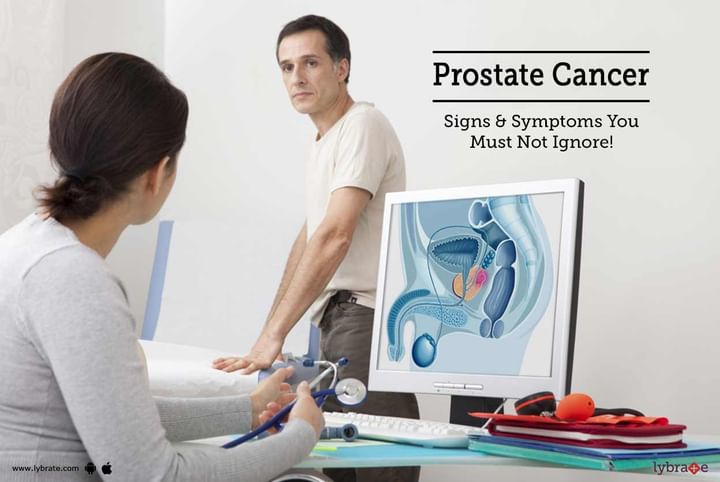Prostate Cancer - Signs & Symptoms You Must Not Ignore!
Cancer is the most dangerous disease noticeable throughout the world. The most common type of cancer that affects men is prostate cancer. Prostate is a small exocrine gland situated directly below the bladder and in front of the rectum. This is gland is approximately in size of a walnut and plays an important role in production of a milky fluid during orgasm of sex in which the semen travels. During the climax stage of the prostate gland is forced to push the fluid and remove the semen out of the reproductive structures.
Prostate gland is a slow progressive disease which makes many males left unidentified even the presence of prostate cancer even until they die. 6 out of 100 male over the age of 60 are getting prostate cancer. Though prostate cancer can be cured at a better rate when compared to other type of cancer it is always best to stay protected. Prevention is always better than cure. Here are few tips to keep your prostate healthy.
Signs and symptoms of prostate cancer-
During the early stages of prostate cancer there are usually no symptoms. Most men at this stage find out they have prostate cancer after a routine check up or blood test. When symptoms do exist, they are usually one or more of the following:
-
The patient urinates more often
-
The patient gets up at night more often to urinate
-
He may find it hard to start urinating
-
He may find it hard to keep urinating once he has started
-
There may be blood in the urine
-
Urination might be painful
-
Ejaculation may be painful (less common)
-
Achieving or maintaining an erection may be difficult (less common).
If the prostate cancer is advanced the following symptoms are also possible:
-
Bone pain, often in the spine (vertebrae), pelvis, or ribs
-
The proximal part of the femur can be painful
-
Leg weakness
-
Fecal incontinence
Ways to have a healthy prostate –
-
Diet and weight – the most important factor is the diet to maintain a healthy weight. Avoid fatty food items and take fats from vegetables than from animals. Avoid dairy products and increase the intake of fresh fruits and vegetables.
-
Exercise – have a regular practise of doing exercise at least for 30mins a day. This really helps you to keep your body fit.
-
Be precautious – if you have a family history of prostate cancer or if you feel you are at high risk of getting prostate cancer talk with your doctor about it and take preventive drugs as per the doctor’s advice.
-
Red foods – research shows that men who consume red foods like watermelon, tomato and other red fruits are at lower risk of getting prostate cancer as they contain a powerful antioxidant called lycopene
-
Caffeine – three to four cups of coffee per day reduces your risk of getting prostate cancer.
- Stop smoking – if you are at high risk of getting prostate cancer it is best advised to quit smoking and alcohol.
In case you have a concern or query you can always consult an expert & get answers to your questions!



+1.svg)
